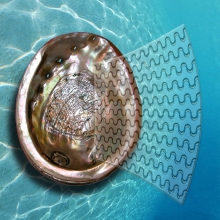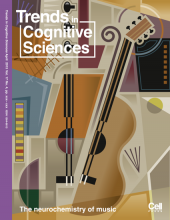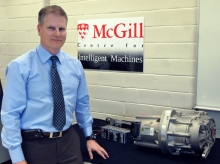The Natural Sciences and Engineering Research Council of Canada (NSERC) announced 78 Strategic Project Grants today at the University of New Brunswick, including 10 for McGill University researchers totaling nearly $4.7 million.

The distinctive “fecal prints” of microbes potentially provide a record of how Earth and life have co-evolved over the past 3.5 billion years as the planet’s temperature, oxygen levels, and greenhouse gases have changed. But, despite more than 60 years of study, it has proved difficult, until now, to “read” much of the information contained in this record. Research from McGill University and Israel’s Weizmann Institute of Science, recently published in the Proceedings of the National Academy of Sciences (PNAS), sheds light on the mysterious digestive processes of microbes, opening the way towards a better understanding of how life and the planet have changed over time.

Congratulations to McGill School of Information Studies faculty member Dr. Catherine Guastavino on her NSERC (Natural Sciences & Engineering Research Council of Canada) Engage Grant.
The project "Spatialized and Interactive Artificial Binaural Reverberation” is a 3D audio rendering project in collaboration with industry partner Audiokinetic, a Montreal-based company producing audio engines for interactive media and video games.


Normally when you drop a drinking glass on the floor it shatters. But, in future, thanks to a technique developed in McGill’s Department of Mechanical Engineering, when the same thing happens the glass is likely to simply bend and become slightly deformed. That’s because Prof. François Barthelat and his team have successfully taken inspiration from the mechanics of natural structures like seashells in order to significantly increase the toughness of glass.
The message below was sent by Mary-Margaret Klempa, Senior Director, OSR regarding Academic salaries paid from Tri Agency grants.

A new network that is bringing together expertise from universities, government and industry is implementing a new vision for training the next generation of medical physicists. Ultrasounds, X-rays, MRIs and nuclear medicine are only a few examples of the essential contributions of medical physicists. The field of medical physics applies the principles of physics to medicine, from diagnosis to treatment, and seeks to quickly transform scientific discovery into clinical applications. Medical physicists are also clinical health care professionals providing service in fields such as radiation therapy, medical imaging, nuclear medicine or radiation protection, to name a few.


McGill University researchers are developing low-cost and high-performance electric engines for the next generation of electric vehicles, in collaboration with industrial partners Linamar, TM4, and Infolytica. They will be able to take advantage of the recent development of batteries with high energy densities to create optimal electric drivetrains for on-road electric cars. The drivetrain is the group of components in a motor vehicle that uses the energy stored in the battery to generate mechanical power and deliver it to the road surface.

Prof. Derek Gray, of the Department of Chemistry, and Prof. In-Ho Jung, of the Department of Mining and Materials Engineering, will each receive a Synergy Award for Innovation. These awards were launched by NSERC in 1995 to recognize partnerships between universities and industry in natural sciences and engineering research and development. Since their inception, the awards have honoured the most outstanding achievements of university-industry collaboration in the natural sciences and engineering. Each winner receives a $200,000 research grant.
“The Synergy Awards for Innovation recognize outstanding achievements that have resulted from partnerships between university researchers and industry,” says Suzanne Fortier, President of NSERC. “These awards honour collaboration as the foundation of achievement and highlight Canadian innovations.
